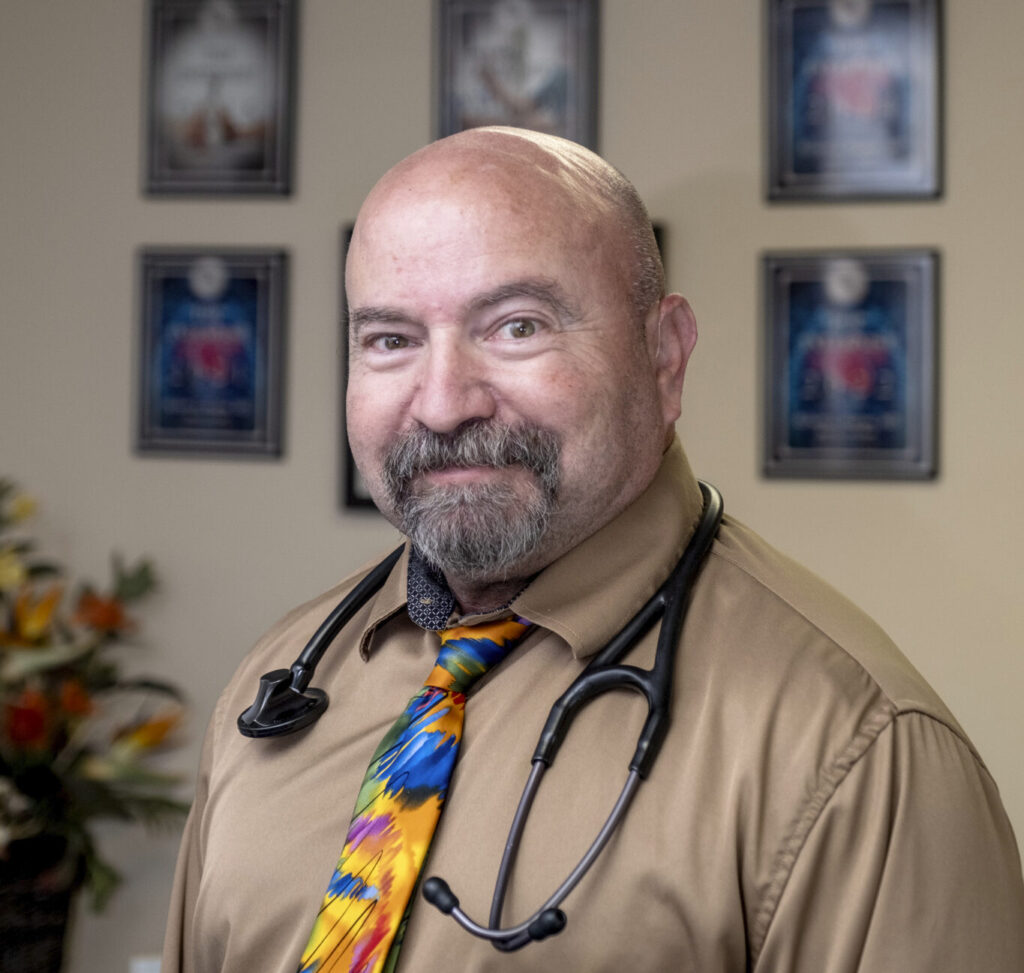A new medication and enhanced emphasis on lifestyle changes are the latest tools being offered to people with high cholesterol, a condition that affects nearly 25 million adults in the U.S. alone, according to the Centers for Disease Control.
In March 2023, news about the latest medication – bempedoic acid – was reported at the annual meeting of the American College of Cardiology. Turns out the drug significantly lowers cholesterol and the risk of heart attacks, as well as reducing the need for a procedure that unblocks clogged arteries.
“Statins are the cornerstone of cardiovascular disease prevention, and they are recommended to a large number of people who either have or are at risk for cardiovascular disease,” said the study’s lead author, Dr. Steven E. Nissen, chief academic officer of the Heart and Vascular Institute at Cleveland Clinic. “But anywhere from 7 percent to 29 percent of patients experience adverse effects they can’t tolerate from use of statins. The primary problem is muscle pain.”
Bempedoic acid doesn’t cause muscle side effects because it’s not activated in muscle and other tissues around the body, Dr. Nissen explained. Until the medication gets to the liver, it’s not activated at all.
According to Dr. Robert Watine, who is board certified in internal medicine and practices with Steward Internal Medicine in Barefoot Bay, medications and available treatments have changed significantly since Mevacor and other statins were introduced in the 1980s.
“When we prescribe cholesterol medications to our patients, we have to consider risk versus benefit. People need to be able to tolerate side effects,” Watine said. And since you have to be treated if you’re high risk, it’s significant that we now have other options available.”
According to WebMD, some of the current drugs prescribed to treat high cholesterol – in addition to bempedoic acid – are:
- Bile acid resin drugs or bile acid sequestrants. They work inside your intestines. They attach to bile from the liver and keep it from being absorbed back into your blood. Bile is made largely from cholesterol, so these drugs whittle down the body’s supply of cholesterol.
- Ezetimibe, which lowers LDL cholesterol by blocking its absorption in the small intestine.
- PCSK9 inhibitors, which are drugs used by people who can’t manage their cholesterol through lifestyle changes and statin treatments. The drugs block a protein called PCSK9, making it easier for the body to remove LDL from the blood.
Some are used by themselves and some in combination with statins.
Dr. Watine, who helps his patients find a healthy path to treating their cholesterol, says that homeopathic treatments, such as red yeast rice, work for some people. “I frequently refer my patients to nutritionists or dietitians to help them get on the right track,” he says.
“People have to stop eating garbage.”
Plus, exercise is key. In addition to his medical degree, Dr. Watine is both a certified strength/conditioning specialist and a certified personal trainer with the National Strength and Conditioning Association. “You have to do aerobic exercise so that you get rid of body fat. Your metabolic rate stays elevated for up to three hours after you’re finished exercising.
The answer isn’t Ozempic or the fen-phen diet, which will make you lose weight but not fat.”
Other suggested lifestyle changes, according to Kaiser Permanente, include
- Eat healthy, nutrient-rich foods.
- Quit – or don’t start – smoking.
- Limit alcohol.
- Reduce or better manage stress.
- Consider over-the-counter supplements like soluble fiber and omega-3 fat/fish oil.
Dr. Watine offers patients a holistic approach as they deal with their cholesterol issues. “I really try to get people’s attention about the need to make healthy choices. I try to empower them to make better decisions and help them to feel more positive about their diet and lifestyle,” he said.
“My goal is to convince them they need a formal exercise program, not just a walk at work.
And I help them learn ‘cookbook medicine’ in an effort to keep the problem from getting bigger.”
The most current FDA guidelines state that a healthy LDL blood level is less than 100 mg/dL. A healthy HDL blood level is 60 mg/dL or higher. Guideline numbers change periodically and the understanding of the role of dietary cholesterol has been revised over the years as new scientific findings have been published.
One thing that has remained constant is that the majority of people don’t know they have a cholesterol problem until they are tested. There are basically no symptoms. The latest guidelines from the American College of Cardiology and the American Heart Association call for healthy adults who do not have heart disease to have their cholesterol levels tested every four to six years, starting at age 20.
Dr. Robert Watine graduated from University of Miami School of Medicine and did his internship and residency at Mount Sinai Medical Center. He is affiliated with Steward Health Care, which operates Sebastian River Medical Center and Steward Medical Group, and works at Steward Internal Medicine, 8000 Ron Beatty Blvd., Barefoot Bay. He is accepting new patients and can be reached at 772-664-1388.

